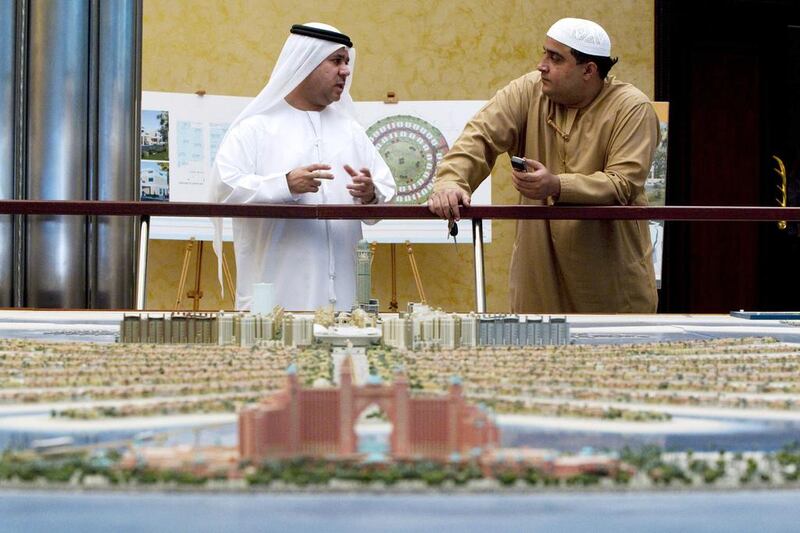Nakheel has set out its stall to potential financial backers after pledging to repay all of its bank debt by August – four years earlier than it originally planned.
The palm islands developer, which was a central part of the Dubai World conglomerate that spooked financial markets in 2009 after it asked creditors for a repayment standstill, had amassed total debts of Dh7.9 billion when it was taken over by the Dubai Government in 2011.
Under the terms of a debt restructuring package agreed at the time, Nakheel planned to pay back its bankers in stages beginning next year and in 2016 and 2018. The company also agreed to issue to trade creditors a sukuk that falls due in August 2016.
But with Dubai’s property market reviving, Nakheel said yesterday that it would pay off Dh5.54bn in August, clearing its bank debts completely after having paid off Dh2.35bn in January.
Joking that the company ought to have invited its bankers to the press conference at the lavish Rixos hotel on The Palm Jumeirah, the chairman Ali Rashid Lootah described the announcement as probably “the most exciting milestone in the history of Nakheel”.
“This means that we have more options to raise future finance for our projects. Under the restructuring, banks were restrained from dealing with us. All of our projects were affected. You don’t know what we had to go through to launch new projects. There were a lot of restraints about the size of the project and the nature of the projects. But now hopefully we might be looking for some more finance,” he said.
“There will be more and bigger projects,” Mr Lootah said, without giving any details of specific future plans.
Nakheel said that all of the cash had come from its own resources, rather than from its owner, the Dubai Government, with which Nakheel said it would be soon discussing IPO plans.
The company ruled out any prospect of restarting the stalled Palm Jebel Ali and said that it would focus on developing schemes that increased recurring income, such as hotels, shopping malls and apartments for lease. However, it said that some new off-plan housing would be developed.
“I think this will definitely improve Nakheel’s credit metrics and allow for additional borrowing,” said Ahmed Shaheen, an associate director for fixed income sales and trading at the investment bank Exotix.
"Nakheel's sukuk has been stable of late on the back of a recovery in the real estate market and Nakheel's ability to monetise on this recovery by progressively selling down its land bank and its inventory. I do not believe that the company is any longer viewed as toxic, judging by the recent performance of the 2016 bonds," he added. "The prepayment is indeed timely and sets Nakheel apart from some of its ailing peers, in particular Limitless, which is on the verge of entering a second round of debt restructuring."
Dubai government-related entities have been encouraged to return to debt markets as asset values recover and banks view the creditworthiness of some of them more favourably.
Still, many remain wary of becoming too exposed to groups that were unable to pay their debts after the 2008 property crash.
“The name doesn’t really help but at the end of the day the Dubai real estate sector is in demand and as long as Nakheel can provide a good business plan I see no reason why banks wouldn’t be comfortable in lending to them again,” said Sebastien Henin, the head of asset management at The National Investor. “Paying off their debts is a good first step.”
lbarnard@thenational.ae
Follow us on Twitter @Ind_Insights





